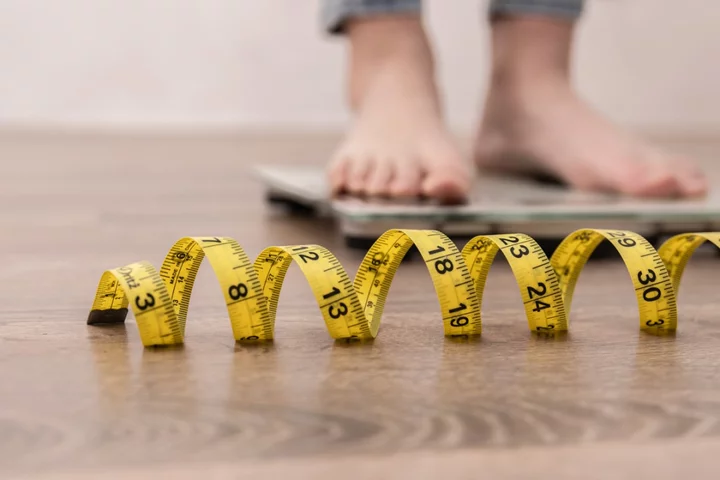
David Ayer 'has nothing to show' for The Fast and the Furious contribution
'Suicide Squad' director David Ayer has "nothing to show" for his contributions to 'The Fast and the Furious'.
2023-08-24 15:29

How to help your teen with comparison culture on GCSE results day
Whether your child’s GCSE results are high, low, or somewhere in between, one thing is inevitable – they’ll compare them with their friends’ grades. This comparison culture, which is far more pervasive because of social media, can leave teens feeling inadequate because their results are worse than their mates, or make their friends feel useless if roles are reversed. But although there’s no getting away from teenagers comparing their results both on and offline, what can parents do to try and limit the damage this it can cause? Former teacher Dr Julia Clements, principal educational psychologist at the children’s mental health charity Place2Be, says the comparison of results will undoubtedly impact some teenagers’ wellbeing. “Your teenager is bound to compare their results with their peers at the same school, but also through social media,” she acknowledges. “Although this comparison is inevitable, it may be harmful for your child’s wellbeing – especially if they’ve not done as well as expected. “Indeed, the term ‘compare and despair’ can be especially pertinent on days like today.” Sharon Davies, CEO of Young Enterprise, a charity which helps young people navigate the changing world of work, adds: “The pressure to measure up to their friends’ achievements can be overwhelming, leading to feelings of inadequacy or disappointment.” So how can parents help their teens? 1. Ask how they feel If your child is down on themselves and rating themselves negatively in comparison to their friends, they may reject any positives and praise parents provide, Clements warns. “It may be more useful, in the first instance, to ask them how they’re feeling, and to acknowledge and validate difficult feelings,” she advises. Such feelings may include disappointment, sadness, anger, shame, or feeling as if they’ve let themselves – and you – down. “If your child is feeling like this, it’s important to give them the message that you love them unconditionally and you’re proud and pleased to be their parent because of who they are – not because of the grades they achieve,” she stresses. 2. If they’ve done better than their friends… If your child has achieved good results, which may be better than some of their friends, then they’ll want to celebrate. But while celebrating is of course a great idea, Clements suggests: “You may want to talk with them about how to be sensitive and compassionate towards their friends who haven’t done so well.” 3. Help them turn a negative into a positive Consultant clinical psychologist Dr Nihara Krause specialises in teenage mental health and is working with the Talking Futures campaign to help parents engage their children in meaningful conversations about their futures. She says if a young person doesn’t get the grades they were hoping for, they may be highly critical of their performance in comparison to their peers. But she suggests parents show them how to turn their negative thinking around. “Parents should encourage their children to focus on recognising the approach they took to exams this time round and take steps to reflect on what they could do to achieve a better result in the future. Focus on what helps a young person gain their own personal best, no matter how their results compare with others.” 4. Don’t ask about their friend’s results or post about them Krause says parents should try to celebrate their child’s achievements for what they are and avoid asking about their friends’ results. “To avoid comparison, parents should also avoid sharing their child’s results on social media,” she says. 5. Don’t be too hard on yourself Clements points out that comparison culture may not just affect teenagers – if their results aren’t as good as expected, mums and dads might start comparing their own parenting during the revision and exam period with other parents whose kids have got better results. “As a parent or carer, you may also be drawn into unhelpful comparisons with others,” says Clements, “and you may question the amount of support you were able to provide your child in the run up to their exams. However, today is not a day for self-criticism or judgements – some self-compassion is important at this time.” 6. Reach out for support This might be the first results day many parents have gone through with their child, and while comparisons with other teens may well have been unhelpful, Davies points out that schools will have career advisers and teachers available who can offer support and advice. There are also online forums and blogs where those in similar situations share their experiences. She says: “No-one is expecting you to have all the answers – that’s why there’s support available.” Read More Charity boss speaks out over ‘traumatic’ encounter with royal aide Ukraine war’s heaviest fight rages in east - follow live Women more severely affected by ME, study claims 4 hacks to get teens off the sofa and get active – as study warns of heart damage Taking adult education classes may lower risk of dementia, study suggests
2023-08-24 13:56

Women more severely affected by ME, study claims
Women with myalgic encephalomyelitis/chronic fatigue syndrome (ME/CFS) tend to have more symptoms and co-occurring conditions than men, according to the world’s largest study of the disease. The study, entitled DecodeME, reveals women who have the condition for more than 10 years are more likely to experience increasingly severe symptoms as they get older. ME/CFS is estimated to affect more than 250,000 people in the UK, of all ages and from all social and economic backgrounds. Its key feature, called post-exertional malaise, is a delayed dramatic worsening of symptoms following minor physical effort. Other symptoms include pain, brain fog and extreme energy limitation that does not improve with rest. Causes are unknown and there is currently no diagnostic test or cure. Experts from the University of Edinburgh analysed anonymous survey questionnaires from more than 17,000 people with ME/CFS. Two-thirds of women, and slightly more than half of men, reported at least one active co-occurring condition. Similarly, 39.2% of women and 28.6% of men reported at least one inactive co-occurring condition. We discovered that the disease is worse for women, in older people, and many years after their ME/CFS started Professor Chris Ponting of the University of Edinburgh A condition was considered active if the participant had experienced symptoms in the preceding six months. The most common active co-occurring condition was irritable bowel syndrome, with clinical depression, fibromyalgia, anaemia and hypothyroidism also featuring prominently. Women also reported, on average, more symptoms than men – 42 compared with 36. The most common of these symptoms were brain fog – a term commonly used to describe the cognitive impairment experienced by participants – unrefreshing sleep and muscle pain. These findings highlight the very serious impact ME/CFS has on women who are disproportionately affected Sonya Chowdhury, chief executive of Action for M.E Participants were also asked to define the severity of their illness from mild to very severe using definitions from the UK’s National Institute for Health and Care Excellence guidelines. Experts identified that being a woman and having ME/CFS for more than 10 years are risk factors for severe illness, with symptoms increasing in intensity as they age. Professor Chris Ponting, study lead from the MRC human genetics unit at the University of Edinburgh’s Institute of Genetics and Cancer, said: “ME/CFS is a devastating disease affecting a UK population the size of Derby. “We discovered that the disease is worse for women, in older people, and many years after their ME/CFS started. “Our hope is that DecodeME’s genetic results will shed light on why certain groups are more susceptible to ME/CFS than others.” Sonya Chowdhury, chief executive of Action for M.E. and chair of the management group of the study, said: “These findings highlight the very serious impact ME/CFS has on women who are disproportionately affected. “It’s important to also recognise the impact that it has on men who have ME/CFS and we thank the 20,000 men and women who have already signed up to take part in this very important study. “We still need more to join us, so if you are 16 or older, live in the UK and have a diagnosis of ME/CFS, please do take part now to help us decode ME at www.decodeme.org.uk/portal.” Read More Charity boss speaks out over ‘traumatic’ encounter with royal aide Ukraine war’s heaviest fight rages in east - follow live 4 hacks to get teens off the sofa and get active – as study warns of heart damage Taking adult education classes may lower risk of dementia, study suggests Indiyah Polack: I didn’t want to go on Love Island because of my acne
2023-08-24 13:29

Chandrayaan-3: India lunar rover Pragyaan takes a walk on the Moon
Chandrayaan-3's rover Pragyaan exits Vikram lander and takes first steps near the little-explored south pole.
2023-08-24 13:27

Japan releases Fukushima water into the ocean, prompting criticism, seafood bans
By Sakura Murakami TOKYO (Reuters) -Japan on Thursday started releasing treated radioactive water from the wrecked Fukushima nuclear power plant
2023-08-24 12:53

Florida officials approve tougher punishment for college staff who break new restroom rules for transgender people
Florida education officials on Wednesday unanimously approved harsher penalties against state college employees who violate a new law barring them and students from using restrooms or changing facilities for a gender other than the one assigned at birth.
2023-08-24 12:22

Starbucks' pumpkin spice latte turns 20, beloved by millions and despised by some
The seasonal drink that made pumpkin spice a star is marking two decades in the world
2023-08-24 12:19

North Korea Fails for Second Time to Launch Spy Satellite
North Korea failed for the second time in about three months to put a spy satellite into orbit
2023-08-24 11:24

LG Chem seeks to sell IT film business to improve competitiveness
SEOUL South Korean petrochemicals maker LG Chem Ltd said on Thursday it is seeking to sell its information
2023-08-24 09:25

North Korea says latest spy satellite launch failed, but will try again
By Josh Smith, Hyunsu Yim and Elaine Lies SEOUL/TOKYO (Reuters) -North Korea's second attempt to place a spy satellite in
2023-08-24 06:17

Conservative activist who took down affirmative action is now going after law firms' diversity programs
The conservative activist behind the Supreme Court case that struck down affirmative action in college admissions this year is suing two international law firms for providing diversity fellowships.
2023-08-24 01:59

Weight loss surgery can reduce risk of cancer among women, study says
Weight loss surgery can help lower the risk of developing cancer, a study has claimed. The study, conducted by researchers at the University of Utah, also found that cancer mortality rates were significantly lower among female surgical patients compared to those who did not receive any bariatric surgery. Although population studies have previously established a positive association between body mass index and cancer rates, it has remained unclear whether the reduction in body weight leads to reduced cancer risk. Researchers say this is due to significant and sustained weight loss in large populations which may be difficult to achieve. However, because of the substantial and maintained weight loss following bariatric surgery, recent studies have reported reduced cancer rates and lower cancer mortality compared with those who haven’t had the proceedure, according to the study’s authors. “As scientists study human diseases, an element of discovery is to confirm like results from multiple studies,” said study author Ted Adams. “This research represents another important study that strongly supports the long-term benefits of weight loss surgery in the prevention of cancer.” Researchers compared cancer prevalence and death rates arranged according to obesity and non-obesity-related cancers, looking at sex, stage of the disease and procedure. The study looked at 22,000 bariatric surgery patients compared with non-surgical subjects with severe obesity between 1982 to 2019. Each patient was matched up based on age, sex, and body mass index. Scientists found that the bariatric surgery group had a 25 per cent lower risk of developing any cancers compared to the non-surgery group. Female patients had a 41 per cent lower risk for developing obesity-related cancers compared to those who did not have surgery done. Cancer risk for male bariatric surgery patients was not lower compared to non-surgery male subjects. Overall, a significant reduction in cancer risk was shown for cancers such as uterine, ovarian, colon, pre-menopausal breast and post-menopausal breast. The study also revealed death from cancer was lower by 47 per cent among female bariatric surgery patients in comparison to matched non-surgery female patients. “Important findings of this study are that bariatric surgery results in lower incidence rates of colon cancer (prior studies have not been consistent),” Dr Adam said. “Also, both pre and post-menopausal women experience reduced breast cancer incidence following bariatric surgery, which may suggest weight loss among women in either category with severe obesity may benefit from reduced breast cancer.” The study is available online in the journal Obesity. Read More Can a vegan diet help with hot flashes in menopausal women? Exercise apps could help boost healthcare workers mental health How to check if you have skin cancer: Symptoms and signs to look out for
2023-08-24 01:45
